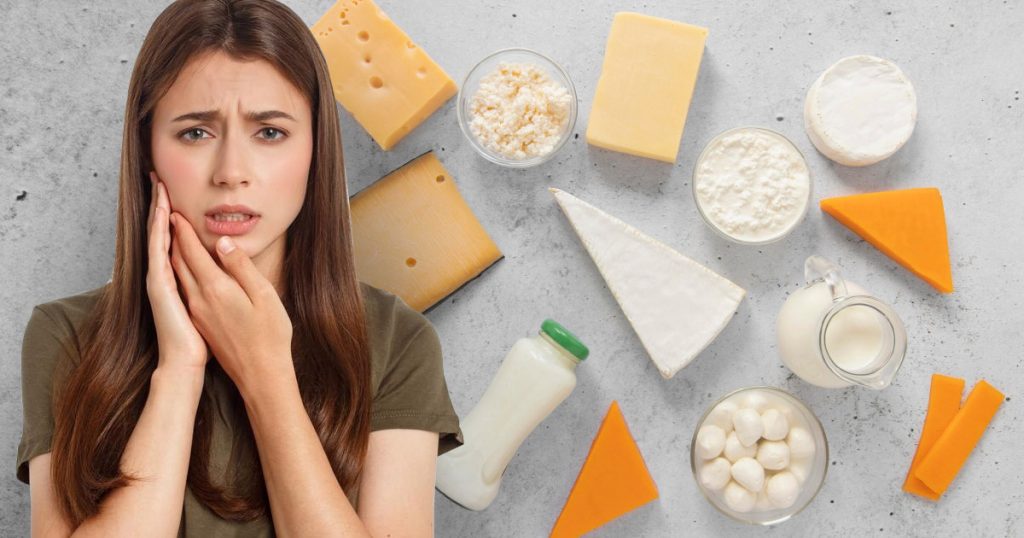Dental implants are a remarkable solution for missing teeth. They boast a high success rate, often cited as over 97%, but that success heavily depends on the recovery process. The healing phase, where the implant integrates with the jawbone, is critical.
During this time, your diet matters significantly. One piece of advice you’ll frequently hear is to avoid dairy products immediately following the procedure. But this guidance often causes confusion. Is consuming dairy after surgery actually harmful, or is it an outdated precaution?
The Case Against Dairy: Common Concerns
If you ask your oral surgeon, “Why no dairy after dental implant surgery?” they will likely point to a few key concerns that arise during the first few critical days of healing.
1. Nausea and Medication Interaction
After surgery, you will likely be prescribed antibiotics and pain medication. Dairy products, especially heavy ones like whole milk or cheese, can sometimes interact poorly with these medications. This combination can upset the stomach, leading to nausea or vomiting. Vomiting puts pressure on the mouth and surgical site, which can disrupt healing clots.
2. The Inflammation Question
Some dental professionals suggest that dairy can promote inflammation in certain patients. While the scientific consensus on this is mixed, the goal after surgery is to reduce inflammation as much as possible.
3. Bacterial Growth
Dairy products can leave a sticky, lipid-rich film in the mouth. This residue can potentially become a breeding ground for bacteria. Since the implant site is essentially an open wound initially, minimizing bacterial growth is crucial to prevent infection.
4. Mucus and Congestion
For some people, dairy increases mucus production. Increased congestion or a “thick” feeling in the throat can be uncomfortable when your mouth is already swollen or sore, potentially complicating breathing or causing you to cough.
The Other Side: Dairy, Calcium, and Myths
While the reasons to avoid dairy sound serious, many dentists believe the restriction is overly cautious or even unnecessary for most patients.
Dairy products are rich in calcium and Vitamin D, which are essential for bone health. Since a dental implant needs to fuse with your jawbone (osseointegration), calcium is vital for long-term success.
We often hear about the “tooth in milk myth”, which is actually true: if a tooth is knocked out, placing it in milk can help preserve it until you reach a dentist. This highlights that milk isn’t inherently bad for oral health.
The concern isn’t always the dairy itself, but the form it comes in.
Can I Eat Ice Cream After a Dental Implant?
Ice cream is a common post-surgery craving. The cold is soothing to swollen tissues. However, the primary issue with ice cream or milkshakes isn’t the dairy, it’s the sugar. High sugar intake can promote bacterial growth. If you do have ice cream, choose low-sugar options and rinse your mouth gently afterward.
Essential Foods After Dental Implant Surgery
The most critical dietary rule post-surgery is texture. You must stick to soft foods after implant surgery to avoid putting any pressure on the new implant.
If you choose to avoid dairy for the first few days, you still need nutrition. Here are some excellent dairy free soft foods to focus on:
- Lukewarm Soups: Broth-based soups (like chicken noodle or vegetable) are hydrating and gentle.
- Proteins: Scrambled eggs or soft-cooked tofu.
- Starches: Mashed potatoes (use broth or water instead of milk), sweet potatoes.
- Fruits: Applesauce, mashed bananas, and avocados.
- Plant-Based Milks: Use almond, oat, or soy milk in smoothies (but drink without a straw).
How Long No Dairy After Dental Implant?
If you or your dentist decides to play it safe, the restriction is usually short-lived.
The standard recommendation for those avoiding dairy after surgery is 48 to 72 hours. This timeframe allows the initial clots to form and the most sensitive phase of healing to pass. After this period, you can usually reintroduce soft dairy like yogurt or cottage cheese, provided you feel comfortable.
Forget the Dairy Debate: Here’s Your Real Priority
The debate over dairy after implant surgery often misses the point. The priority should always be protecting the surgical site and maintaining hygiene.
While the scientific evidence proving dairy universally hinders implant healing is weak, the risk of nausea when combined with medications is very real for some patients.
My recommendation? Err on the side of caution for the first 48 hours. Stick to clear liquids, broths, and non-dairy soft foods. After two days, if you aren’t experiencing nausea and are maintaining good oral hygiene, soft dairy is likely fine.
Ultimately, the best diet is the one your oral surgeon recommends based on your specific health history. Always follow their personalized advice for the best results.
